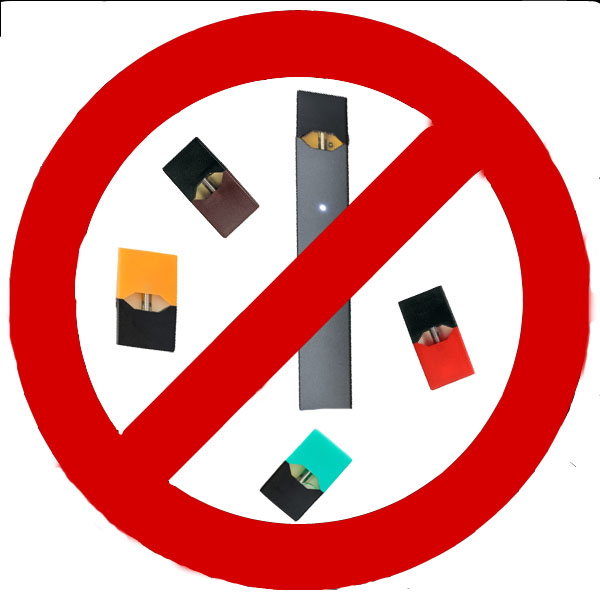Need a puff? Get in Line!
Vaping addiction creates line problems in bathrooms
Nov 30, 2021
Vaping has become a significant annoyance among the student body, and it is a complex problem to stop.
Nicotine is an addictive substance that is being abused in schools all around the nation by plenty of students.
In a survey of the bathrooms during passing time, on average, at least four people complain about the restrooms being full of students spending passing time vaping in a stall while other students actually need to use the restroom.
“People think it’s cool like it’s the new thing,” said Senior Clarie Miles.
The COVID-19 pandemic made it more accessible to get involved in vaping. So now, students cannot go through the day without needing a hit of this compulsive substance.
Students think it is safer than smoking cigarettes and marijuana, but just one vape hit is equivalent to multiple cigarettes.
“It’s a novelty, something new and different,” said Life Skills teacher Dede Rush.
With people spending time in the bathrooms so often, many others are made tardy and lose time during the passing period.
“I wish we could stop people from ever starting vaping,” said Rush.
Staff are becoming more aware and trying to prevent the use of vapes in the school. Suggested monetization in the bathrooms has been the most common response to trying to stop this problem. For example, students who are caught vaping have their pass privileges taken away.
“I think like any trend, it will run its course.” said Principal Phil Sczykutowicz. “I’m nervous the addictive impact will keep many people hooked forever, and that’s the sad part.”
Classes for more education on vaping and other substances are being considered, but the problem is most students wouldn’t attend such courses.
“I think kids know what they are doing, but they don’t have details,” said Sczykutowicz.
A lot of students have no idea what they are vaping. Companies put many unknown substances into these products, and people are eager to hit whatever they can without knowing what it is or what it can do to their bodies.
No matter the addiction, it will not stop in one day. Long-term education and relationships will hopefully reduce the abuse.
If something is not done soon about the issue, it could lead to way worse problems.
“If we don’t do something, it’s going to lead to the next health care crisis. I guarantee it,” said Sczykutowicz.




